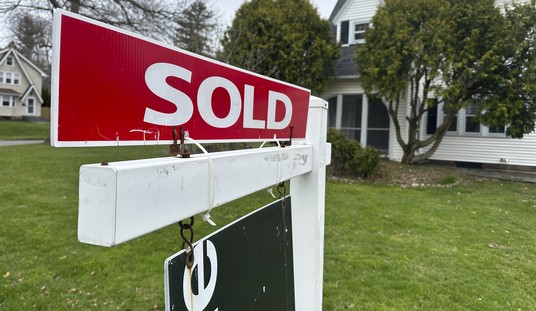I used to be a Kennedy-style "liberal." Then I wised up. Now I'm a libertarian.
But what does that mean?
When I asked people on the street, half had no clue.
We know that conservatives want government to conserve traditional values. They say they're for limited government, but they're pro-drug war, pro-immigration restriction and anti-abortion, and they often support "nation-building."

And so-called liberals? They tend to be anti-gun and pro-choice on abortion. They favor big, powerful government -- they say -- to make life kinder for people.
By contrast, libertarians want government to leave people alone -- in both the economic and personal spheres. Leave us free to pursue our hopes and dreams, as long as we don't hurt anybody else.
Ironically, that used to be called "liberal," which has the same root as "liberty." Several hundred years ago, liberalism was a reaction against the stifling rules imposed by aristocracy and established religion.
I wish I could call myself "liberal" now. But the word has been turned on its head. It now means health police, high taxes, speech codes and so forth.
So I can't call myself a "liberal." I'm stuck with "libertarian." If you have a better word, please let me know.
When I first explained libertarianism to my wife, she said: "That's cruel! What about the poor and the weak? Let them starve?"
For my FBN show tomorrow, I ask some prominent libertarians that question, including Jeffrey Miron, who teaches economics at Harvard.
"It might in some cases be a little cruel," Miron said. "But it means you're not taking from people who've worked hard to earn their income (in order) to give it to people who have not worked hard."
Recommended
But isn't it wrong for people to suffer in a rich country?
"The number of people who will suffer is likely to be very small. Private charity ... will provide support for the vast majority who would be poor in the absence of some kind of support. When government does it, it creates an air of entitlement that leads to more demand for redistribution, till everyone becomes a ward of the state."
Besides, says Wendy McElroy, the founder of ifeminists.com, "government aid doesn't enrich the poor. Government makes them dependent. And the biggest hindrance to the poor ... right now is the government. Government should get out of the way. It should allow people to open cottage industries without making them jump through hoops and licenses and taxing them to death. It should open up public lands and do a 20th-century equivalent of 40 acres and a mule. It should get out of the way of people and let them achieve and rise."
David Boaz, executive vice president of the Cato Institute, took the discussion to a deeper level.
"Instead of asking, 'What should we do about people who are poor in a rich country?' The first question is, 'Why is this a rich country?' ...
"Five hundred years ago, there weren't rich countries in the world. There are rich countries now because part of the world is following basically libertarian rules: private property, free markets, individualism."
Boaz makes an important distinction between equality and absolute living standards.
"The most important way that people get out of poverty is economic growth that free markets allow. The second-most important way -- maybe it's the first -- is family. There are lots of income transfers within families. Third would be self-help and mutual-aid organizations. This was very big before the rise of the welfare state."
This is an important but unappreciated point: Before the New Deal, people of modest means banded together to help themselves. These organizations were crowded out when government co-opted their insurance functions, which included inexpensive medical care.
Boaz indicts the welfare state for the untold harm it's done in the name of the poor.
"What we find is a system that traps people into dependency. ... You should be asking advocates of that system, 'Why don't you care about the poor?'"
I agree. It appears that when government sets out to solve a problem, not only does it violate our freedom, it also accomplishes the opposite of what it set out to do.

























Join the conversation as a VIP Member